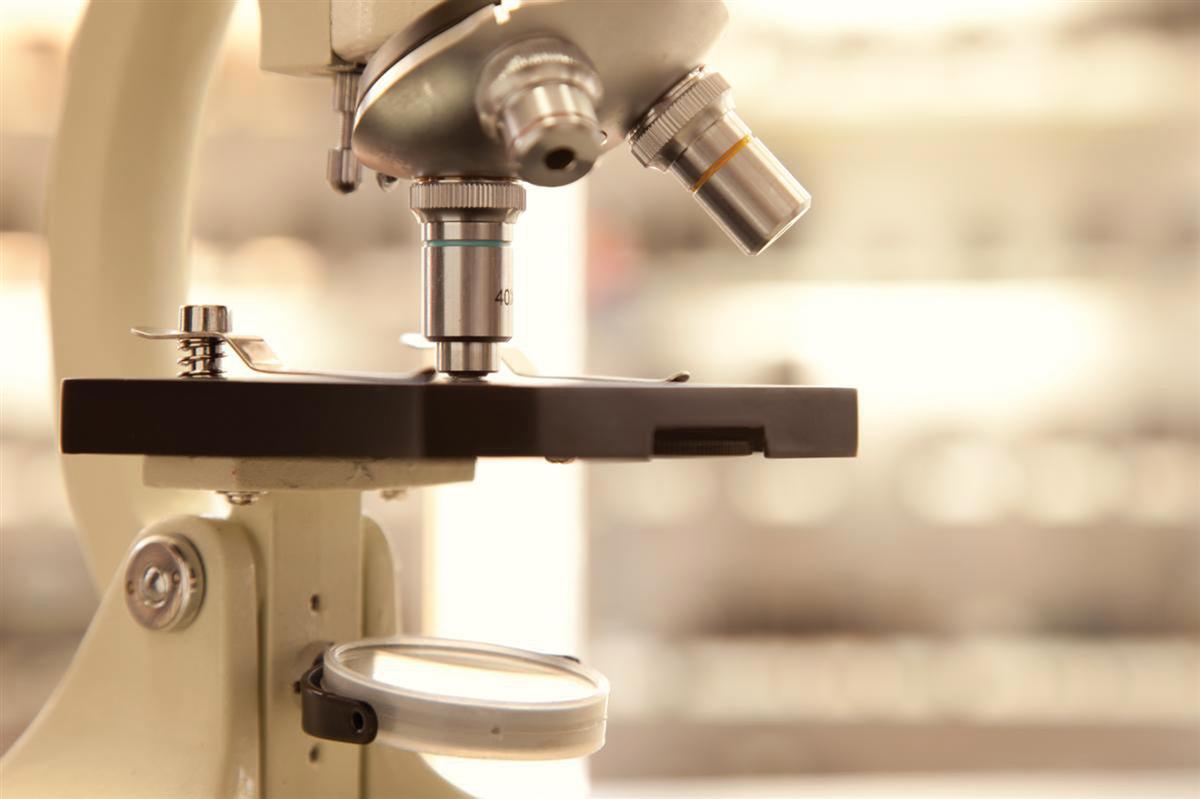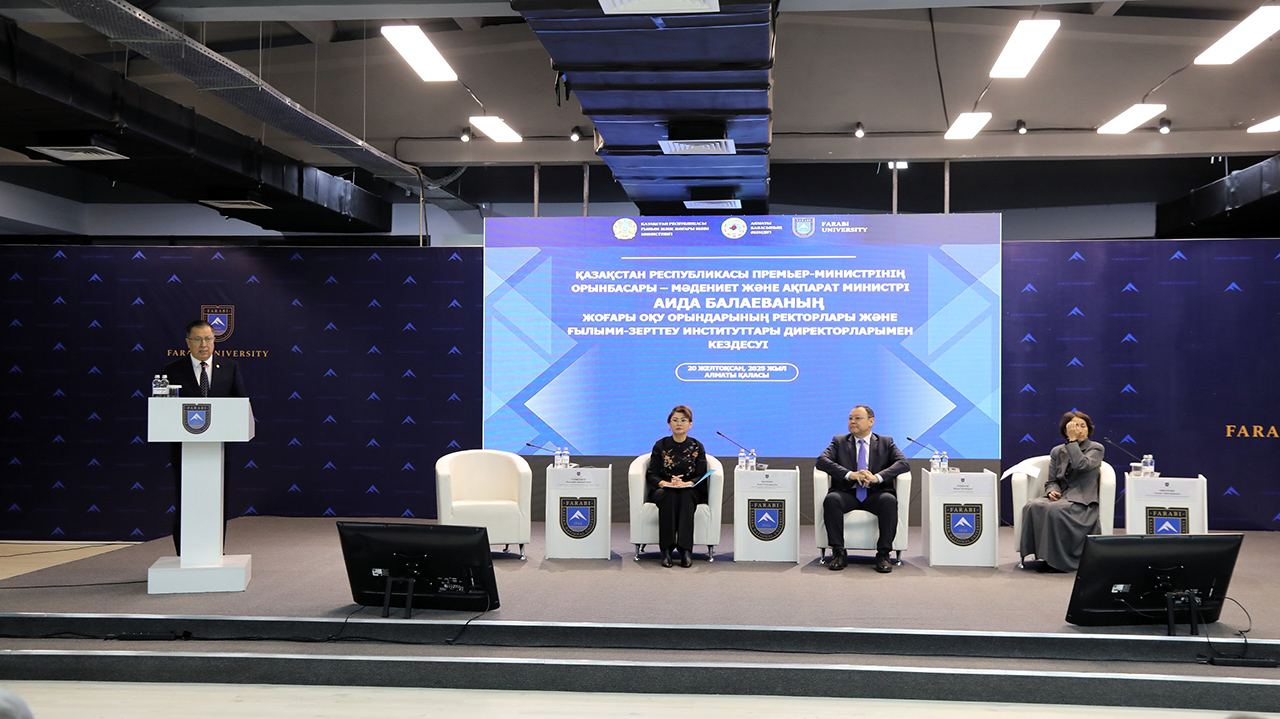TECHNOLOGY THAT CLEANS CONTAMINATED SOIL

Currently KazNU is making efforts to become a world-class university and an innovative hub of the national economy. The university conducts research within the framework of basic and applied programs aimed at innovative, complex scientific and technical development.
Many talented scientists at the university make an invaluable contribution to the formation and development of national science and technology. KazNU has created an effective technological corridor "from idea to commercialization" on the basis of a cluster approach. Due to effective work, investments are attracted from business and from various international sources. Moreover, the results of breakthrough research and technologies are used on the basis of small-scale production.
One of the scientific achievements of Al-Farabi Kazakh National University is the bio-preparation "Miko – oil". The history of the creation of this bio-preparation which has an ability to clean the soil contaminated by oil is a vivid example of the symbiosis of science and business. After all, the scientific novelty of this project is stated not only on the paper, but also has a positive impact on the economy and the environment.
For the first time, undergraduates and doctoral students of the Faculty of Biology and Biotechnology mastered the methods of obtaining this biological product in the university laboratory. The partner and customer of this technology is KazEcoSolutions LLP, which has been engaged in the processing of industrial waste since 2008. Over the past five years, close cooperation has been achieved with the partner company to develop a biological product and a special technology for its application.
As a result of in-depth research on the release of active strains of destructive microorganisms from soils contaminated with petroleum hydrocarbons, KazNU scientists have developed a product based on active strains. The product created on the basis of special agro-microbiological technology guarantees the effectiveness of soil cleaning. Its main reason is the resistance of microorganisms in the composition of the bio-preparation to various natural changes. The product, the method of its production and the technology of application developed for it are patented as inventions. It holds the official bulletin "National Institute of intellectual property" of the Ministry of Justice of the Republic of Kazakhstan and considered to be an "industrial property".
This project has been developed since 1999 in the laboratory of the University, where a group of scientists worked. Doctor of biological sciences, Professor Togzhan Mukasheva is among them. The scientist's doctoral research is devoted to the study of polluted soils, the isolation of active microorganisms, the creation of a sustainable community and the search for the most active analogues of cleaning oil-contaminated soils. After achieving the results of laboratory work, the pace of transition to the next stage of the biopreparation preparation project has significantly decreased. In order to continue scientific research, it was necessary to conduct field tests to prove its effectiveness. At the same time, KazEcoSolutions offered its assistance in organizing these tests. In 2013 pilot and industrial tests were carried out on the territory of Ozenmunaygas MGP-3. The biological product showed a result of more than 93 percent during the 30-day exposure period in cleaning contaminated soil. Based on these tests, an agro-microbiological technology for cleaning with the use of bio-preparation "Miko-oil" has been developed.
Today KazNU scientists have established the industrial production of this microbial preparation. Despite the high demand for such microbial preparations in Kazakhstan, the volume of production is small. "Therefore, it was decided to create a domestic version that is not inferior to its Western counterparts," the project manager claimed. According to him, biological remediation is carried out in order to introduce active microorganisms into the soil or activate the enzyme of local micro-flora.
The oil production has been carried out in our country for more than 100 years, you may often encounter "historical" pollution with oil and oil production waste. This situation dates back to the the USSR, when environmental issues were not taken into account. For instance, on the territory of Atyrau and Mangystau regions there are whole oil lakes and swamps that poison hundreds and thousands of hectares of soil. Scientists of KazNU and the partner company "KazEcoSolutions" jointly intend to reduce the number of oil-polluted lands in Kazakhstan in the most economical and effective way. By the way, after biological purification by the "bioremediation", the soil previously contaminated with oil is re-fertilized and the ecosystems are normalized. The newly developed method is much more effective than technologically outdated, dangerous and inefficient methods, such as burning oil-containing waste and contaminated soil. Unfortunately, some companies still use traditional "cleaning" methods rather than progressive "green" technologies.
“However, since technological equipment is not cheap, the organization of production is also expensive. On the other hand, one of the advantages is that for the organization of successful biotechnological production, there is no need to create large workshops. It can be a small enterprise that produces several tons of this microbial product per year. Speaking about the organization of biotechnological production, I would like to note the importance of grant programs administered by the Science Committee of the Ministry of education and science of the Republic of Kazakhstan. Unfortunately, KazEcoSolutions, our strategic partner did not have the opportunity to fully finance the construction of the workshop in the context of the economic crisis. Therefore, the biologics" Miko-oil" can be produced only in limited quantity in laboratory conditions. Now having received a grant from the World Bank, there are many opportunities to implement the plans for creating new industrial production. At the same time, KazEcoSolutions allocated 25 million KZT of its own funds for the implementation of this project,” – Professor Togzhan Mukasheva asserts.
The fundamental difference between “Miko – oil” biologics and foreign analogues is the full adaptation of strains to local conditions. Microorganisms included in the preparation are completely isolated from contaminated soils of Atyrau and Mangystau regions for a long time. They are highly adapted and adapted to high temperatures in the soil (up to+50°C), high salinity, prolonged lack of moisture, sudden temperature changes and, most importantly, high concentrations of petroleum products that are toxic to strains of foreign preparations. These criteria make our product more competitive compared to all foreign alternatives. In the era of a market economy, the most important thing is price. The cost of a domestic microbial product is several times lower than imported. Miko-oil is several times more effective than its foreign analogues, due to the reason that it does not require long-term transportation and storage, preservation by drying, and it is additionally enriched with living organisms. The developed technology does not only clean the soil, but also improves the micro-flora of the polluted area.
“Despite the work done and its advantages in comparison with other analogues, the only drawback is that technology is not widely distributed on the market. In this regard, the World Bank Grant gave a powerful impetus to increasing production volume. We hope that in the near future the bio-preparation "Miko-oil" will take its place among domestic microbial preparations,” – biologist Togzhan Mukasheva believes.
